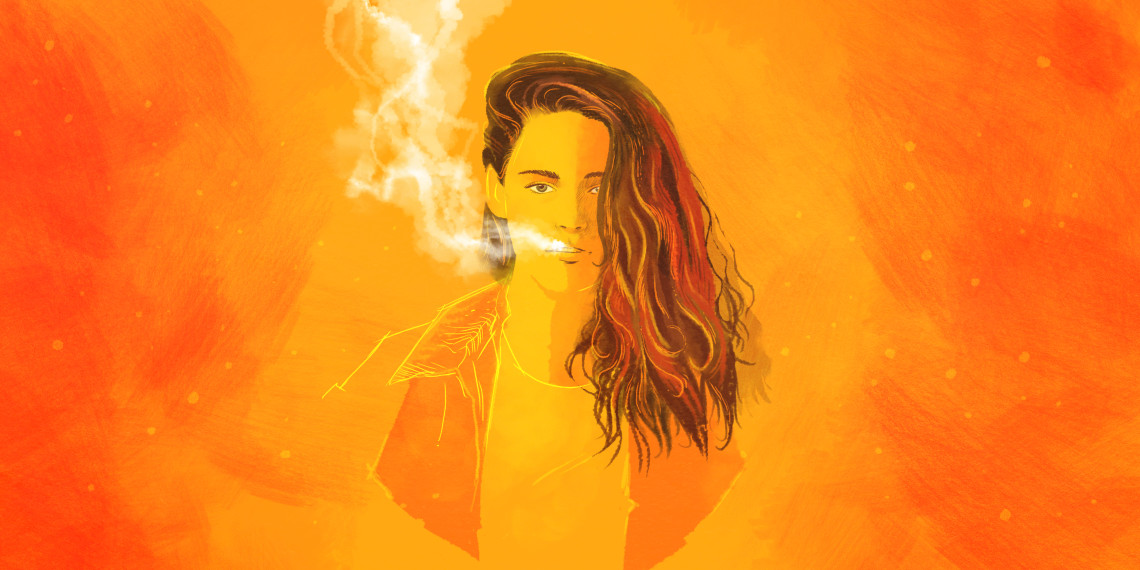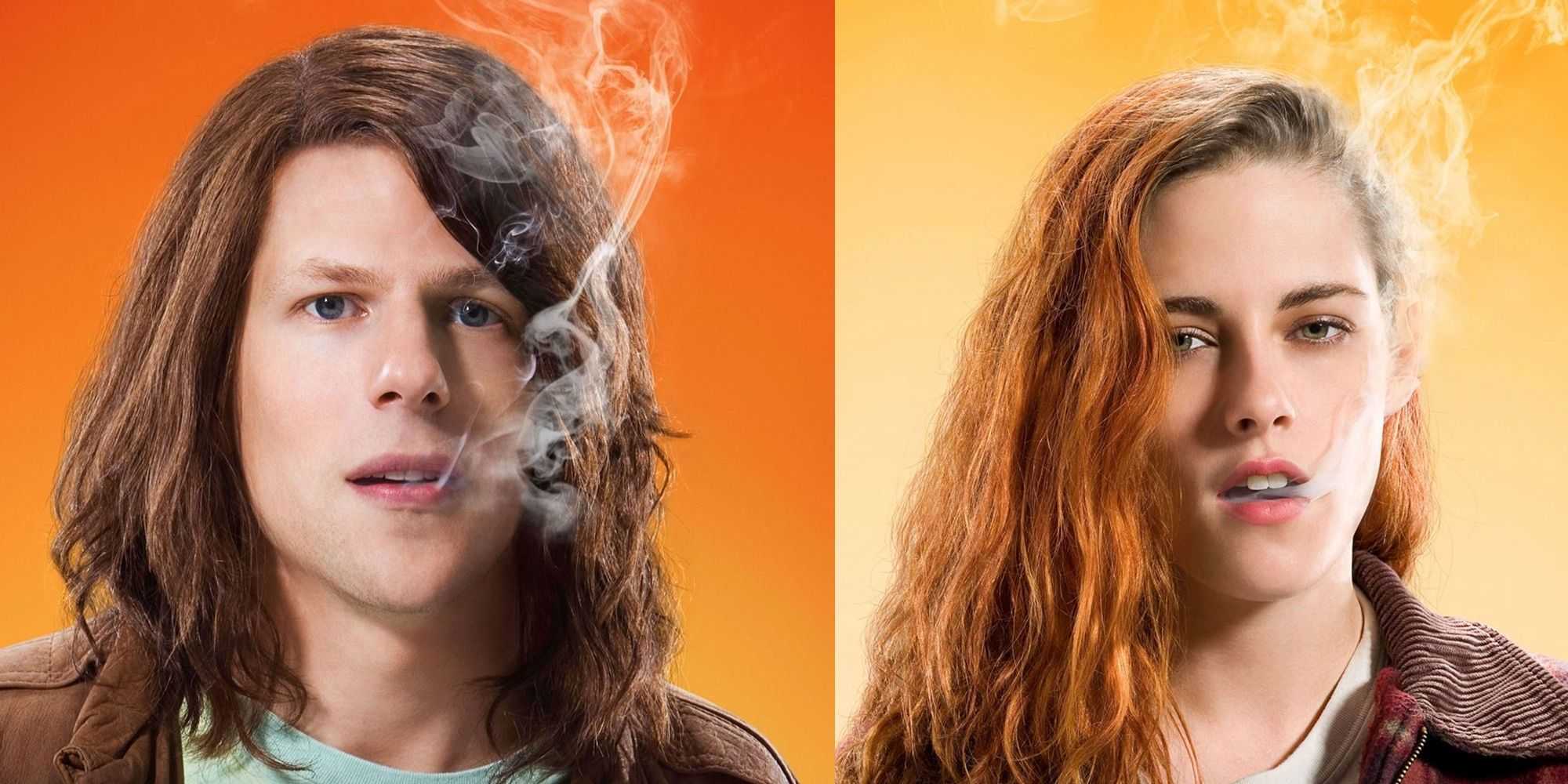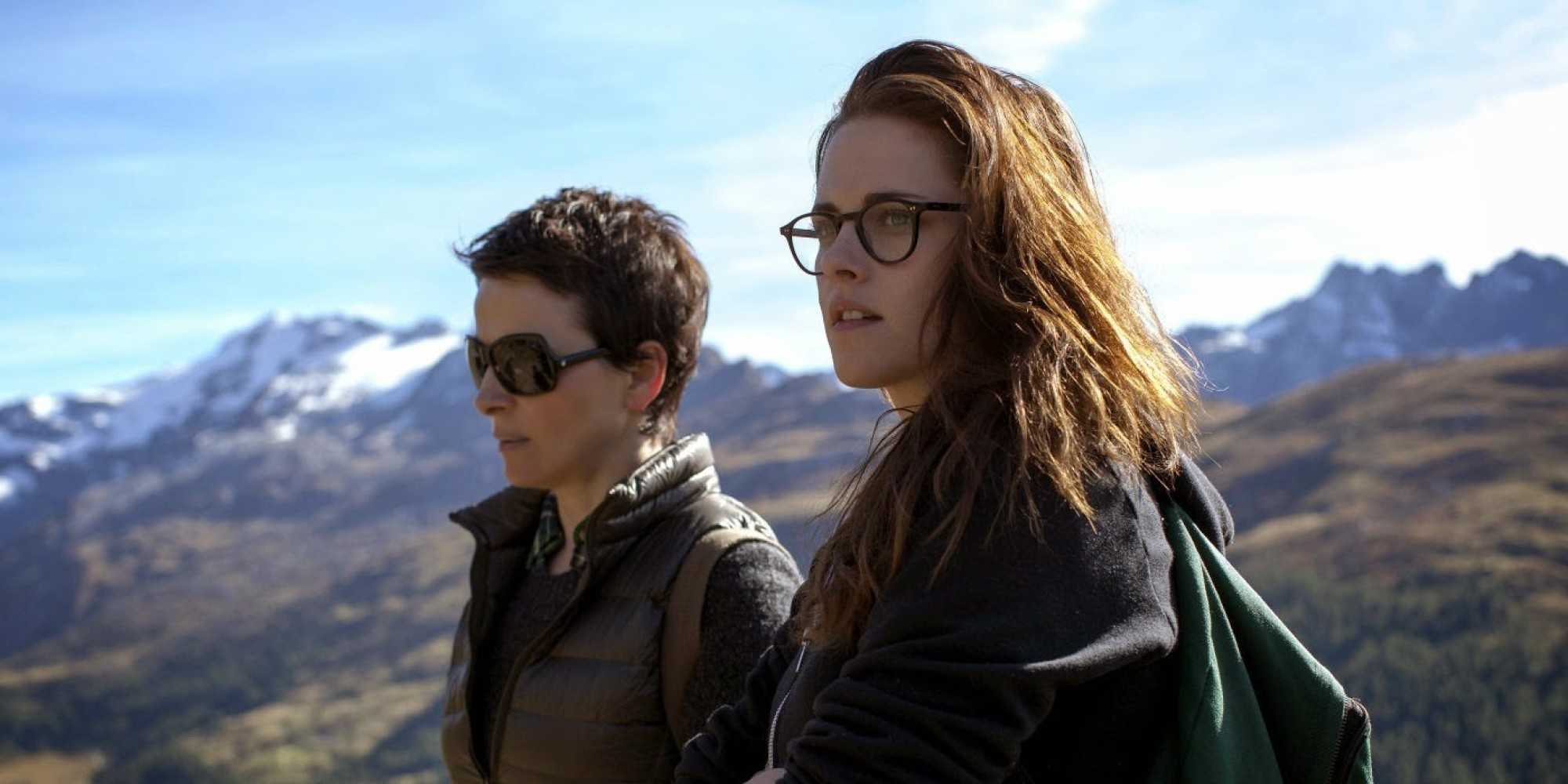Following Kristen Stewart’s turns in the Twilight series, among the most widely mocked film franchises of all time, public perception of the actress was less than kind. She usually seemed uncomfortable in the spotlight, gradually garnering a reputation for never smiling, and she was always darkly androgynous, with tousled hair and deep circles beneath her eyes. Instead of being funny or charismatic, like other current Hollywood darlings Jennifer Lawrence and Emma Stone, she was intensely cerebral (she’s no harder or more sour-faced than Shia LaBeouf or Miles Teller, but then again, she’s a woman). She took everything very seriously, especially her work. The American public didn’t warm to these traits; we like our starlets sunnier and less displeased with all the attention.
But some of that perception has been shifting lately. Following her release from the bloated girth of the five Twilight films, to which Stewart was chained for four long years, she’s challenged herself in taking on roles that are demanding and no doubt fairly daunting: stripper, lesbian rock icon, fairy-tale princess, and guard at Guantánamo Bay, to name a few. “I like to be scared,” she said in an interview with Little White Lies magazine. “I love to suddenly feel out of control. Actors walk around wearing these little tool-belts of acting skills. And I just don’t find that interesting to watch.”
In a presumed attempt at learning from the best, she’s pitted herself against more experienced actors such as Charlize Theron, Julianne Moore, A Separation’s Peyman Moaadi, and Juliette Binoche. Apparently interested in auteurs, Stewart has worked with Olivier Assayas, Walter Salles, and David Fincher, and her upcoming projects include an untitled Kelly Reichardt film (once again starring Michelle Williams) and Woody Allen’s next movie. She also appears to be expanding her genre horizons, if American Ultra, out this Friday, is any indication. A stoner action-comedy directed by Nima Nourizadeh, the film pairs Stewart with Jesse Eisenberg, her co-star in Greg Mottola’s Adventureland (2009). Their chemistry was good in that underrated, wistful film; one hopes for a stranger but inspired pairing here. Ultra looks to represent another opportunity for Stewart to flex her comedic chops. She also appeared on “The Tonight Show Starring Jimmy Fallon” last week, competing in one of the host’s zany games. “I’m not very good at the whole improv joke thing…,” Stewart muttered apprehensively.
Stewart’s dating life has been scrutinized. After she was discovered having an affair with her married Snow White and the Huntsman director Rupert Sanders, she issued a humble, prostrating apology to Robert Pattinson, her Twilight co-star and long-time boyfriend. Stewart and Pattinson kept their relationship clandestine—they were never so much as photographed holding hands—thus the public apology came as a surprise. Even Donald Trump weighed in, tweeting: “Robert Pattinson should not take back Kristen Stewart. She cheated on him like a dog & will do it again.” Jude Law and Hugh Grant both philandered and went on to enjoy illustrious careers, but it’s a trickier business for women, who are more likely to be slut-shamed. Still, Stewart didn’t curl up and hide. She continued acting.
In an article penned for The Daily Beast, actress Jodie Foster defended Stewart following the cheating scandal. The two had previously starred together as mother and daughter in Stewart’s first big film, David Fincher’s Panic Room (2002). Foster fondly recalls being pregnant and watching 11-year-old Stewart run around set while imagining her own unborn child: “Would she be just like Kristen? All that beautiful talent and fearlessness?” Stewart’s startlingly mature performance in Panic Room bears out Foster’s admiration, especially one terrifying scene in which she goes into hypoglycemic shock.
Stewart’s next starring role came in Cake Eaters (2007), as a terminally ill teen hoping to have sex before she dies. The film itself wasn’t praised, but Stewart’s performance stood out; slurring her words and struggling to walk, she captured a character with a debilitating neuromuscular disease with surprising sensitivity and ease. In that same year, she scored a minor part in Sean Penn’s Into the Wild. She isn’t given much to do, but does at least reveal another facet of her talent when she sings several songs quite tenderly, showing off a not-bad singing voice.
All hell broke loose in 2008, though, when Twilight became an overnight sensation. Directed by Catherine Hardwicke, and based on Stephenie Meyer’s best-selling young-adult novel, the first film in the vampire romance was filled with wooden dialogue and based upon an exceedingly silly premise. Cast as Bella and Edward, a pair of star-crossed high school sweethearts, Stewart and Pattinson were swept into a whirlwind of impassioned fangirls. Pattinson never seemed overly pleased to be part of the franchise: as this Buzzfeed supercut putting together Pattinson’s many negative comments throughout the years, including an appearence he made on “Late Night With Jimmy Fallon” to promote the final Twilight film, demonstrates. When asked if the saga’s conclusion felt bittersweet, he gestured to Fallon’s audience and said, “Um… For them!” In another video interview, he confided to entertainment reporter Chris Van Vliet, “A lot of stuff in the Twilight world doesn’t make any sense.” Stewart, however, treated her role with the utmost solemnity, speaking about Bella with conviction during every press tour.
Stewart’s Bella is nervous, bookish, and introverted. Perhaps that’s not a stretch for Stewart based on her public persona and subsequent roles, but she was also burdened with a character already beloved by an army of tweens. “Every girl projects their own personality onto her, so it was weird playing the part,” Stewart said in an interview for Moviefone’s “Unscripted”. Considering the shoddily written book that served as the inspiration for the franchise, Pattinson and Stewart did the best that could be expected. Maybe Stewart bit her lip one too many times, and her performance was a little bland—but she didn’t have much to go on. Bella’s relationship with Edward is co-dependent and even masochistic, yet these actors had to make it all seem terribly romantic—something they did manage to pull off to some degree, judging by reactions from a younger demographic.
Cultural events that breed insane popularity tend to get brutally ripped apart by criticisms no matter what; thus Stewart’s acting in the Twilight franchise came under severe, and often unreasonable, scrutiny. Because these films were intended for a mainstream audience, viewers who saw and deemed Stewart’s performances unworthy were not necessarily the types who could appreciate her quiet subtlety. Really, she is more at home in weirder indie features than in shallow Hollywood productions, as many of her subsequent performances proved.
Stewart bravely offered James Gandolfini a lap dance in Welcome to the Rileys (2010), when she plays a stripper who is saved by a kindly paternal deus ex machina. She then portrayed Joan Jett in The Runaways (2010), a quasi-biopic about the legendary all-girl rock band. She committed fully to the role—even chopping her hair into an unflattering black mullet—and spent a lot of time with Jett herself, to better emulate the androgynous, tough-girl swagger. Even if the film presented a somewhat glossed-over and generic version of the group’s rise to fame in the 1970s, Stewart’s transformation was impressive. (Even Jett herself was floored; as she told Interview magazine, “When we were hanging out together on set, it was like I had a mirror image… It was just great—and it wasn’t creepy. It was wonderfully special.”)
Much like Into the Wild, Walter Salles’s film adaptation of Jack Kerouac’s On the Road (2012) conveyed a man’s reckless adventure, with Stewart playing the chick on the outskirts of the story—likewise lusting to explore, but seen mostly as a plaything. Snow White and the Huntsman (2012) at least gave her the chance to be a hero. She summoned a newfound toughness for Snow White, the meekest and most doll-like of Disney’s heroines. Dressed in a gothic, tattered version of the signature ball gown and calling out orders in a low, fierce voice, she gets down and dirty and rides to war. Stewart was not forced to appear conventionally feminine here, and seemed more confident than ever with her sexual ambiguity.
Stewart got even more serious for Peter Sattler’s debut Camp X-Ray (2014), about a female soldier named Amy who is stationed at Guantanamo Bay post-9/11. Amy (Stewart) strikes up something resembling a friendship with Ali (Moaadi), one of the detainees, who is going mad with loneliness. Amy wears a tight, doughnut-shaped bun at the back of her head and is careful to follow all the proper protocol—but Ali can tell she’s different from the other Gitmo guards.
Predictably, Amy’s job grows complicated. She begins to sympathize with the prisoners. Her fellow guards are cowards or bullies, afraid to deviate from the status quo even when they see inappropriate practices carried out. Amy wishes she could help Ali, but she’s as powerless as he is. Her life in the army is a different kind of prison. Stewart conveys all this without any radical outbursts or gestures; we see it in her tightly pinched face and rigid gait. She accords a character who has a narrow worldview and limited perspective an essential semblance of intelligence and humanity. Nothing in Twilight required this kind of complexity.
Last February, Stewart became the first American actress to win a César, France’s equivalent of the Oscar, for her co-starring role in Olivier Assayas’s Clouds of Sils Maria (2014). “The reasons why people make films here in France are very different from the reasons why people make movies in Hollywood, and I prefer it here a little bit,” she admitted backstage. France was ahead of America in recognizing Stewart’s talent, as their culture is generally quicker to embrace sulkier, more unconventional actresses.
Stewart’s chemistry with Juliette Binoche is sensual and exciting. Stewart plays Valentine, loyal assistant to the aging actress Maria Enders (Binoche). Their connection is intimate; like a lover, Val tends dutifully to Maria’s every need. They travel to remote Switzerland as Maria prepares for a theater role. Conflict arises when their opinions differ on the play Maria is prepping for: The actress despises the character she must inhabit, while Val sees her humanity. Binoche draws Stewart expertly from her shell, and Stewart is a generous, delicate scene-partner. She complements the veteran, whereas many other starlets look silly up against a master (Emma Stone with Michael Keaton in Birdman, for example).
Clouds is a relatively simple film. Its themes are presented plainly, even hammered home. The play Val and Maria work on is analyzed to death, and obviously mirrors real life. But Valentine remains an enigma. We never know what she is thinking or feeling. What do we make of the scene where she pulls over, gets out of her car, and vomits? It happens after she accuses Maria of jealousy and possessiveness, as they swim naked together in a mountain lake. Could these two women be in love with each other? The line grows blurry. In the end, Maria’s interpretation of her character in the play changes, thanks to the elusive Val’s insight.
At one point, Val defends Jo-Ann (Chloë Grace Moretz), Maria’s young co-star, saying that she approves of Jo-Ann’s vulnerable performance in a sci-fi blockbuster and doesn’t care about the actress’s exploits in the tabloids or nude photos online. “She’s not antiseptic like the rest of Hollywood,” Val tells the disdainful Maria. This line takes on a self-referential aspect as uttered by Stewart, as one could assume she is simultaneously defending the Twilight saga and her own headline-making mistakes. But her role in Clouds could be self-referential in more than that one instance. Jo-Ann has a sordid affair with a married man, something Stewart herself has done. Furthermore, it has been recently speculated (and photographic evidence abounds) that Stewart is dating Alicia Cargile, a girl rumored to be Stewart’s former personal assistant. Cargile’s exact position remains unconfirmed, and Stewart refused in Nylon magazine to give a direct statement about her sexuality, instead saying, “Google me, I’m not hiding.” A Google search brings up the photos with Cargile, and if body language is any indicator, it’s likely they are together. In Clouds, of course, Stewart plays a PA who gets too close to her employer. Did life imitate art? Maybe there is more of Stewart in this performance than one might initially think.
Kristen Stewart isn’t a chameleon who disappears inside roles, like Gary Oldman or Johnny Depp. Her range so far is limited, and she has successfully interpreted only characters somewhat akin to who she is off-screen. But perhaps choosing parts that hit close to home is a more admirably authentic choice that we often give credit for. Instead of stepping outside her comfort zone, Stewart instead uses acting as a way to express and explore personas close to her own heart. Her bravery lies in her willingness to open up to the camera; though she tucks herself away from the paparazzi and fidgets in front of TV hosts, she is honest about who she is on-screen. In an interview with Elle last year, Stewart confessed, “I cannot be anyone other than who I am. If I can’t empathize with something [my character] does, it’s a problem. And sometimes I’ve had directors be like, It’s not you, Kristen, it’s the character. And I’m like, That’s the laziest thing you can possibly say to me. It is me. It’s definitely me.” When you watch Stewart, you know you’re being handed an honest performance. Maybe she doesn’t relish the fame, but she’s clearly dying to connect and communicate some kind of truth—and amid a profession and a world full of bullshitters, that makes her invaluable.
—
Original illustration by Krishna Shenoi.





















5 thoughts on “Why Kristen Stewart Is Hollywood’s Most Sincere Starlet”
I like some of your commentary about the films but you let tabloid gossip rather than facts tell the story of her private life, which means you’ve made leaps and errors, unprofessional for any reporter.
It is so obvious that you use the tabloids for personal info about her life. Pity because you covered most of her work rather well.. but nevertheless, incomplete and lacking substance in your description. If you are gonna write about a person, please make sure that you have taken the time to research the facts from well respected sources and you have not done this.
You are a total idiot! Not even going to read any more than the first few paragraphs! You wonder why jerks like you don’t get interviews when you use old tabloid lies and copy and paste! Who takes a wannabe writer seriously who can’t do any work? Sorry I gave you a hit! Will be the last one! Pathetic liar!
Pingback: This Week’s Good Reads (Week of August 17) | SAGindie
Er, do the commenters realize this is a flattering piece and everyone’s just being hilarious? No? Oh well. I liked it a lot! Just watched Clouds of Sils Maria and Camp X-Ray, and your points are well taken.